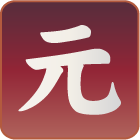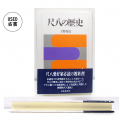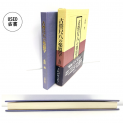Category
- Pre-Owned Bamboo Flutes
- Shinobue Flute
- Shakuhachi Flute
- New Shakuhachi For Sale (1.1-1.7)
- NEW SHAKUHACHI FOR SALE (1.8)
- New Shakuhachi for Sale (1.9 and longer)
- New Jinashi Shakuhachi for Sale
- Shakuhachi Repair
- Shakuhachi Accessories
- Utaguchi Caps for Shakuhachi
- Shakuhachi Cases
- Shakuhachi Bags
- Shakuhachi Bestsellers
- Shakuhachi Books/Scores
- Shakuhachi CD/DVD/Recordings
- Shakuhachi For Beginners
- Japanese Gift Items
- Komuso Items
- Tips from Top Players
- Shakuhachi FAQ
- Coming Soon...
- Coming Soon...
- Flute Making Tools
- Lesson/Workshop Booking
- Gagaku Flute
- Garments/Festival Items
- Japanese Urushi
- Nohkan - Japanese Bamboo Flute
- Outlet Bargain
Business calendar
WHAT'S NEW
-
2.0 Tozan Seizan Japanese Shakuhachi Bamboo Flute, PRE-OWNED **Listen**
-
2.0 Tozan Roshu Japanese Shakuhachi Bamboo Flute, PRE-OWNED **Listen**
-
1.8 Tozan Senshu Japanese Shakuhachi Bamboo Flute, PRE-OWNED **Listen**
Shakuhachi Books/Scores
Used: A Brief History of the Fuke Sect With Musical Theory for Fuke Shakuhachi
Rare used booklet. This is an abridged version of the same author's book: "Fuke Shushi, The History of Fuke Sect. The Music and Techniques." QTY.1 only.
RARE Used: Fuke Shushi, The History of Fuke Sect.
<Sold> Very rare used book. The original book is Out of Print.
Author: Kuzan Takahashi
Used: Essays on Classical Shakuhachi and Sankyoku
Rare used book. Original book is Out of Print.
Author: Tsukamoto Kyodo
Printed in 1994, 465 P
Used: History of Shakuhachi by Katami Ueno
Rare used book. Original book is Out of Print.
Text condition is very good!
Used: Kokan (Ancient) Shakuhachi Studies with CD
<SOLD>Rare used book. The original book is Out of Print. Texts in mint condition.
Written by Satoshi Shimura, Shuppan Geijutsu-sha, 2002, Hardcover, 196 pages, Japanese only. All sales are final.
Included CD has the recordings of 3 jinashi shakuhachis played by the author, Satoru Shimura. (Futaiken Reibo, Rempoken Kizenken Tsuru no Sugomori, Sankyoku: Mama no gawa)
RARE Used: Historical Thought on Shakuhachi
Rare used book. The original book is Out of Print.
Published in 1925 by Chikuyusha. Not for sale. Japanese only. 263 page. Hardcover. All sales are final.
Used: Historical View of Kinkoryu Shakuhachi
Rare used book. The original book is Out of Print. Texts condition is very good.
Age-tanning and minor damage on the box. Written by Chikuzen Nakatsuka, Published by Nippon Ongaku-sha, 1979, Hardcover 607pages, Japanese only. See image for a table of contents. All sales are final.
CHIKUMEISHA Sankyoku Sheet Music Written by Yamaguchi Shiro/Goro
A MINIMUM ORDER REQUIRES +2,500 JPY
-Kyohon (Instruction, Japanese texts only)
-Kurokami, Tsuru no Koe
-Yugao
-Rokudan no Shirabe
Learn to Play the Shakuhachi by Marco Lienhard
Are you drawn to the haunting and soulful sound of the Shakuhachi flute? Whether you're a beginner or an advanced player looking to improve your skills, "Learn to Play the Shakuhachi" is a comprehensive guide that can help you master this instrument. This book includes Japanese folk songs, traditional songs, etudes, and original compositions by Shakuhachi master Marco Lienhard. The etudes are exercises designed to improve your technique and enrich your sound, tailored to your playing ability.


























